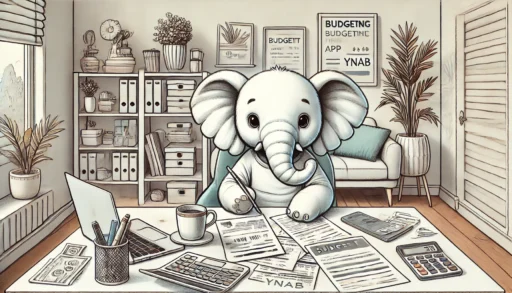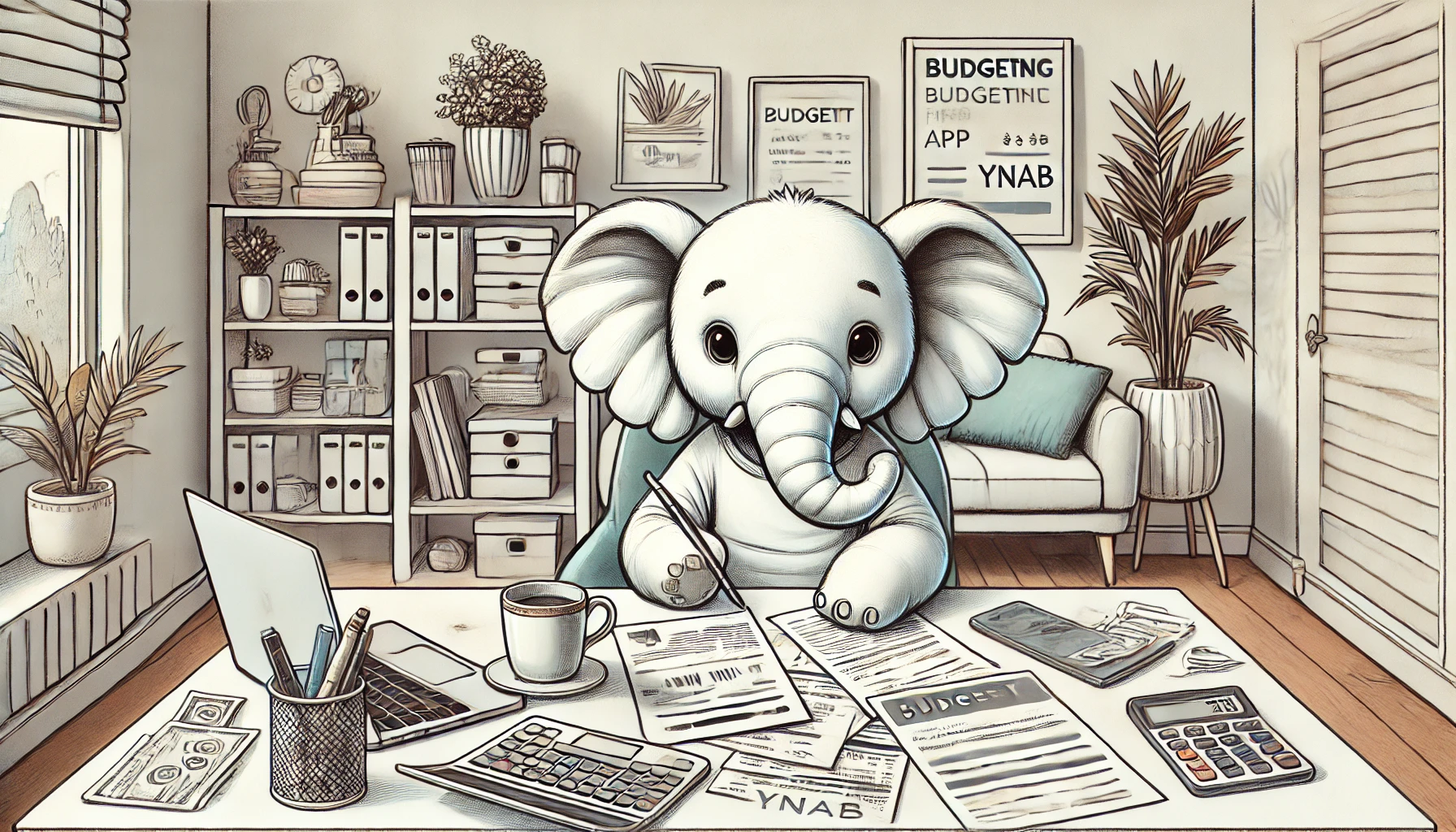Hello, Elephants! Financial stability isn’t just about how much you earn—it’s about managing what you have wisely. Many people, even those with substantial incomes, fall into common financial traps that can lead to stress, debt, and financial insecurity. By recognising and avoiding these pitfalls, you can set yourself on the path to financial success. Let’s explore the top ten financial mistakes and how to avoid them.
1. Unnecessary Spending
One of the most frequent financial mistakes is underestimating the impact of small, regular expenses. A few pounds here and there may seem insignificant, but it all adds up. For instance, spending just £20 a week on coffee or takeaways amounts to over £1,000 a year—money that could go towards savings or paying down debt.
The key is to differentiate between necessities and luxuries. Occasional treats are perfectly fine, but make sure these are factored into your budget. If you plan for them and can afford them without sacrificing other financial goals, then enjoy them guilt-free!
Pro Tip: Use apps like YNAB or Mint to track discretionary spending and identify areas where you might be overspending without realising it.
2. Never-Ending Subscriptions
In today’s world, it’s easy to accumulate a host of subscriptions—from streaming services to monthly deliveries. These small, recurring payments can silently drain your finances, especially when you’re not actively using them. Take stock of all your subscriptions and ask yourself if you really need them all. Can a lower-cost alternative, like a basic gym membership, meet your needs?
During financially tight periods, cutting back on these non-essential subscriptions can free up cash for savings or debt payments.
Pro Tip: Review your bank statements regularly to spot and cancel any unused subscriptions. Tools like Truebill can help manage and cancel subscriptions.
3. Living Beyond Your Means with Credit Cards
Credit cards can be useful for building credit or managing cash flow, but using them to finance a lifestyle beyond your means can lead to financial trouble. High interest rates—often around 24%—mean that any balance carried over from month to month grows rapidly, turning a small purchase into a much larger debt.
If you can’t pay off the balance in full each month, avoid using credit for non-essential purchases. Instead, stick to using your card for planned expenses, and only when you’re certain you can pay it off without accruing interest.
Pro Tip: Try the debt avalanche method to pay off high-interest debt first. You can calculate how long it will take using a debt payoff calculator.
4. Buying a Vehicle You Can’t Afford
Many people make the mistake of financing a new vehicle without fully considering the total cost of ownership. While you may be able to afford the monthly payments, vehicles depreciate quickly, and borrowing money to pay for a car only increases the amount you’re spending over time.
Consider whether you really need a new car or a large SUV. These vehicles are often expensive to insure, maintain, and fuel. Opting for a more economical vehicle can save you thousands over its lifespan.
Pro Tip: Check the total cost of ownership calculator before buying a car to see the true long-term costs.
5. Overspending on Housing
While it’s natural to want a nice home, it’s easy to overextend yourself by purchasing a property that’s too large or expensive. This often leads to higher monthly payments, increased taxes, maintenance, and utility costs. As a rule of thumb, you should aim to spend no more than 28% of your monthly income on housing costs and no more than 36% on total debt.
Before committing to a home purchase, carefully assess the additional costs like property taxes, home repairs, and utilities. The financial stress of being house-poor can outweigh the benefits of a larger home.
Pro Tip: Consider following the 28/36 rule: spend no more than 28% of your gross monthly income on housing and no more than 36% on all debt, including mortgage, car loans, and credit cards.
6. Misusing Home Equity
Home equity is often considered a financial safety net, but using it irresponsibly can lead to more debt. Refinancing or opening a home equity line of credit (HELOC) might seem like an easy way to access cash, but this often increases your overall debt load. While refinancing to a lower rate or to consolidate high-interest debt can be smart, using your home equity to finance discretionary spending is risky.
Before tapping into your home equity, ensure the decision aligns with your long-term financial goals, and calculate whether the new debt will be manageable.
Pro Tip: Use a HELOC only for emergencies or significant home improvements that will increase the property’s value, and avoid using it as a general-purpose fund.
7. Failing to Build an Emergency Fund
Many households live paycheck to paycheck, leaving them vulnerable to financial shocks such as job loss, medical emergencies, or unexpected repairs. Failing to save for emergencies is a common mistake that can lead to high-interest debt or financial ruin when unexpected expenses arise.
Aim to build an emergency fund that covers at least three to six months’ worth of essential expenses. Keep it in a liquid, accessible account like a high-interest savings account to ensure it’s available when you need it most.
Pro Tip: Start small if necessary—aim for a £1,000 emergency fund first, and build from there. Consider using high-interest accounts like Marcus to keep your emergency fund earning interest while still being accessible.
8. Not Investing for Retirement
If you don’t invest for your future, you may find yourself working far longer than you’d like. Compounding interest allows your investments to grow over time, so the earlier you start, the better. Maximise your employer-sponsored pension plan or invest in tax-deferred accounts like a Stocks & Shares ISA.
Failing to invest means relying solely on savings, which likely won’t be enough to sustain you during retirement. Start small if necessary, but make retirement contributions a non-negotiable part of your budget.
Pro Tip: Use a compound interest calculator to see how starting early can significantly increase your retirement savings. Check out this calculator.
9. Using Retirement Funds to Pay Off Debt
Raiding your retirement funds to pay off current debt is a tempting but dangerous strategy. While it might seem like a quick fix, withdrawing from retirement accounts comes with penalties and taxes, reducing the amount you’ll have for the future. More importantly, you’ll lose out on the compound growth your retirement savings would have earned.
Before using retirement funds, explore other options such as consolidating debt or using a personal loan. If you must tap into your retirement savings, ensure you have a concrete plan to repay the amount as quickly as possible.
Pro Tip: Consider talking to a financial advisor to explore other debt repayment strategies that don’t involve dipping into retirement accounts.
10. Not Having a Financial Plan
Your financial future depends on the decisions you make today, and without a plan, it’s easy to drift into bad habits or make poor financial choices. A comprehensive financial plan should include clear goals for budgeting, saving, investing, and debt repayment, as well as contingencies for unexpected life events.
Regularly review and adjust your financial plan to account for changes in income, expenses, or goals. This ongoing process ensures you stay on track and adapt to any financial challenges.
Pro Tip: Start simple. Use this financial planning template to map out your current situation and set clear financial goals.
Bonus Mistake: Ignoring Inflation and Cost of Living
Many people overlook the effects of inflation on their purchasing power. As prices rise, failing to adjust your budget can erode your savings and make future financial goals harder to achieve. Make sure you’re accounting for inflation when you set financial goals, especially if you’re planning for long-term savings like retirement.
Regularly review your budget to ensure your expenses don’t outpace your income. Investing in assets that typically outpace inflation, like stocks, can also help protect your purchasing power.
Avoiding these common financial mistakes can have a significant impact on your long-term financial health. Whether it’s cutting unnecessary spending, avoiding high-interest debt, or planning for the future, small changes can lead to big improvements over time.
The key is to stay proactive. Regularly review your finances, make adjustments as needed, and keep your financial goals in focus. With careful planning, you can build a stable and secure financial future for yourself and your family.
Useful Resources:






